
Why Many Organizations Don’t Trust Their Data
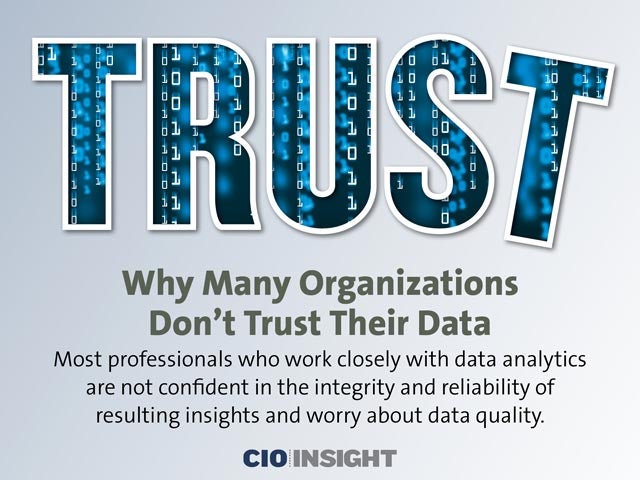 Why Many Organizations Don’t Trust Their Data
Why Many Organizations Don’t Trust Their Data
Most professionals who work closely with data analytics are not confident in the integrity and reliability of resulting insights and worry about data quality.
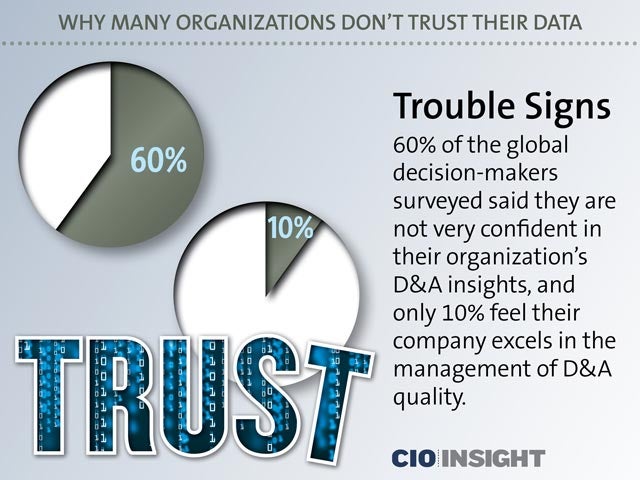 Trouble Signs
Trouble Signs
60% of the global decision-makers surveyed said they are not very confident in their organization’s D&A insights, and only 10% feel their company excels in the management of D&A quality.
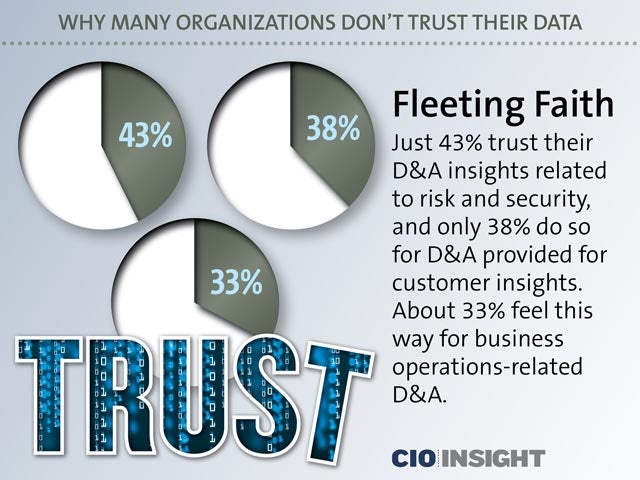 Fleeting Faith
Fleeting Faith
Just 43% trust their D&A insights related to risk and security, and only 38% do so for D&A provided for customer insights. About 33% feel this way for business operations-related D&A.
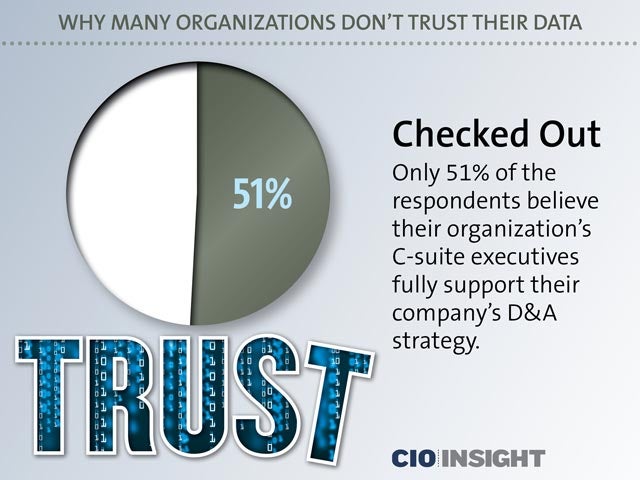 Checked Out
Checked Out
Only 51% of the respondents believe their organization’s C-suite executives fully support their company’s D&A strategy.
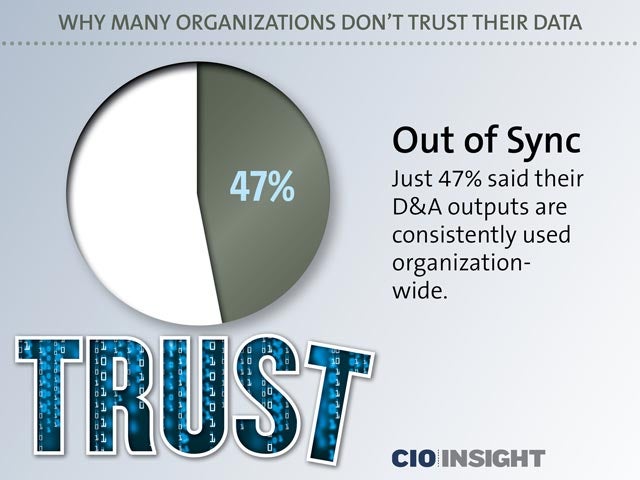 Out of Sync
Out of Sync
Just 47% said their D&A outputs are consistently used organization-wide.
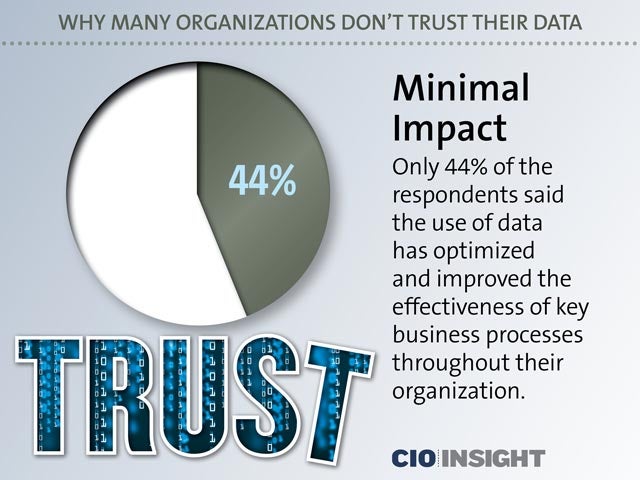 Minimal Impact
Minimal Impact
Only 44% of the respondents said the use of data has optimized and improved the effectiveness of key business processes throughout their organization.
 Operational Issue
Operational Issue
Just 43% said employees throughout the company use data and analytics appropriately to complete tasks and make decisions.
 Over-Exposed
Over-Exposed
70% of the respondents said that, by using D&A, they expose themselves to reputational risk through resulting data breaches.
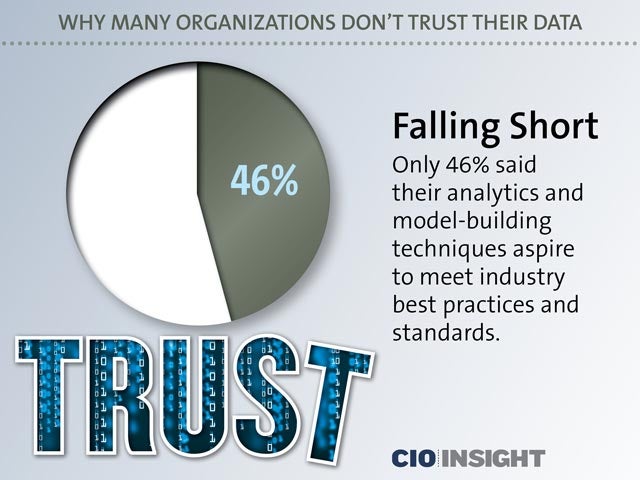 Falling Short
Falling Short
Only 46% said their analytics and model-building techniques aspire to meet industry best practices and standards.
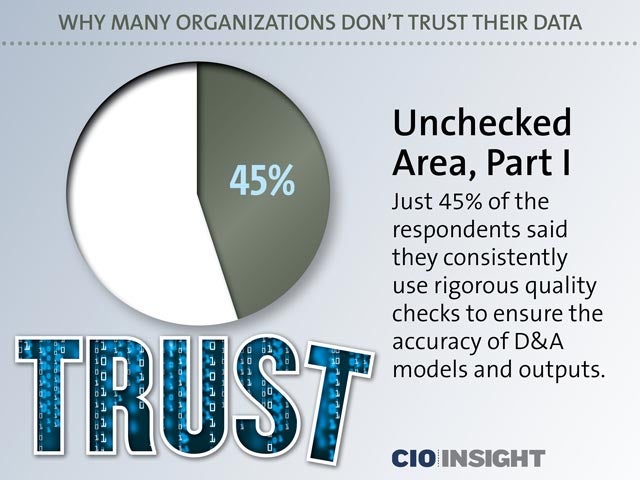 Unchecked Area, Part I
Unchecked Area, Part I
Just 45% of the respondents said they consistently use rigorous quality checks to ensure the accuracy of D&A models and outputs.
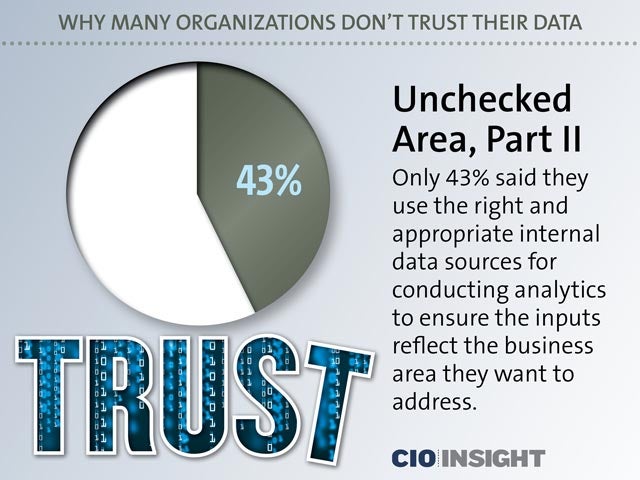 Unchecked Area, Part II
Unchecked Area, Part II
Only 43% said they use the right and appropriate internal data sources for conducting analytics to ensure the inputs reflect the business area they want to address.
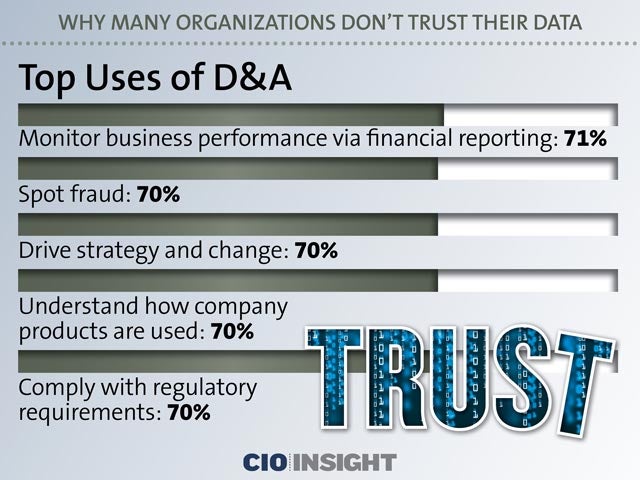 Top Uses of D&A
Top Uses of D&A
Monitor business performance via financial reporting: 71%, Spot fraud: 70%, Drive strategy and change: 70%, Understand how company products are used: 70%, Comply with regulatory requirements: 70%